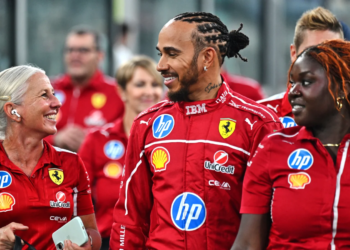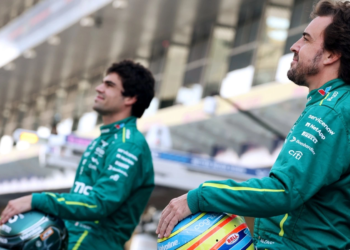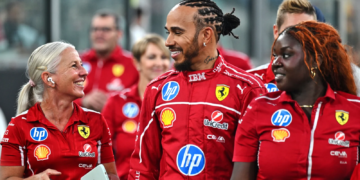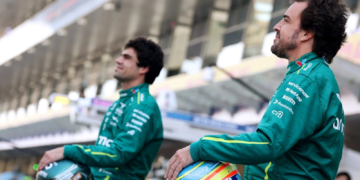Red Bull Team Principal Christian Horner has moved to explain the reasons behind many of the teams choosing to object to Andretti’s attempts to join the Formula 1 grid.
Andretti’s possible arrival into F1 has been touted for several months, leading back to a failed takeover of the Sauber group last year, and the FIA president, Mohammed Ben Sulayem, recently confirmed that the American operation currently remains the only team to be forthcoming with a direct proposal to enter the sport.
Despite Andretti being a motorsport brand with immense pedigree and putting forward a compelling case to dismiss all the potential barriers that could have feasibly denied them a place on the grid, their bid to break onto the F1 scene has been continuously rebuffed by many of the current constructors.
Even the announcement of an agreed partnership with General Motors to bring the Cadillac name into F1 failed to appease the team bosses to alter their stubborn stance, culminating in Mario Andretti, the driving force behind the project, blasting the current crop for prioritising their own greed above the overall growth of the series.
Now, Horner has become the next high-profile name to argue the resistance towards Andretti’s potential F1 venture has originated from a dispute surrounding the financial ramifications involved for the existing teams.
“Look, Andretti is a great brand, a great team. Mario, what he did in Formula 1 – as an American as well – is fantastic,” Horner noted in an interview with RACER.
“Obviously GM with Cadillac as well would be two phenomenal brands to have in the sport, and I don’t think there can be any dispute about that.
“As with all these things, though, it ultimately boils down to, ‘Well, who’s going to pay for it?’
“And you can assume that the teams, if they’re perceived to be the ones who are paying for it – or diluting their payments to accommodate it – of course it’s not going to sit well.
“The two teams that are supporting it (Alpine and McLaren) either have a partnership in the U.S. with them or are going to supply them an engine. The other eight are saying, ‘Well hang on, why should we dilute our element of the prize fund?’”
Horner has additionally drawn on previous comments from the sport’s owners, Liberty Media, stating that retaining the current 10-car model – in place since 2016 – would be more beneficial to ensure the series as a whole continues to thrive on an economic level.
Audi’s introduction in time for the 2026 engine regulation changes has already been confirmed, courtesy of a majority stake purchase in the Sauber group, and Horner believes the Volkswagen associate’s route into the sport has set out a precedent for the way in which new entries will be welcomed by all parties.
“On the other side, you’ve got the Liberty guys saying, ‘Well we’re not going to pay for it, we’re happy with 10 healthy, competitive franchises from an operational perspective – garages, logistics, motorhomes – it’s all more to accommodate.
“I’m sure they would prefer the Audi model, where they come in and acquire an existing franchise.
“If you introduce another one or two teams, you dilute the value of the current 10 franchises, which of course teams – particularly down towards the bottom end of the grid – have got a very inflated inherent value at the moment,” he continued.
Horner does, however, see the advantage of having a team of Andretti’s standing on the grid and hopes a resolution to the ongoing situation can eventually be sought.
“I hope a solution can be found. What would be cleaner would be if they were able to take on one of the existing teams or franchises, but they are certainly both great brands that would be very, very welcome in Formula 1.”










Discussion about this post